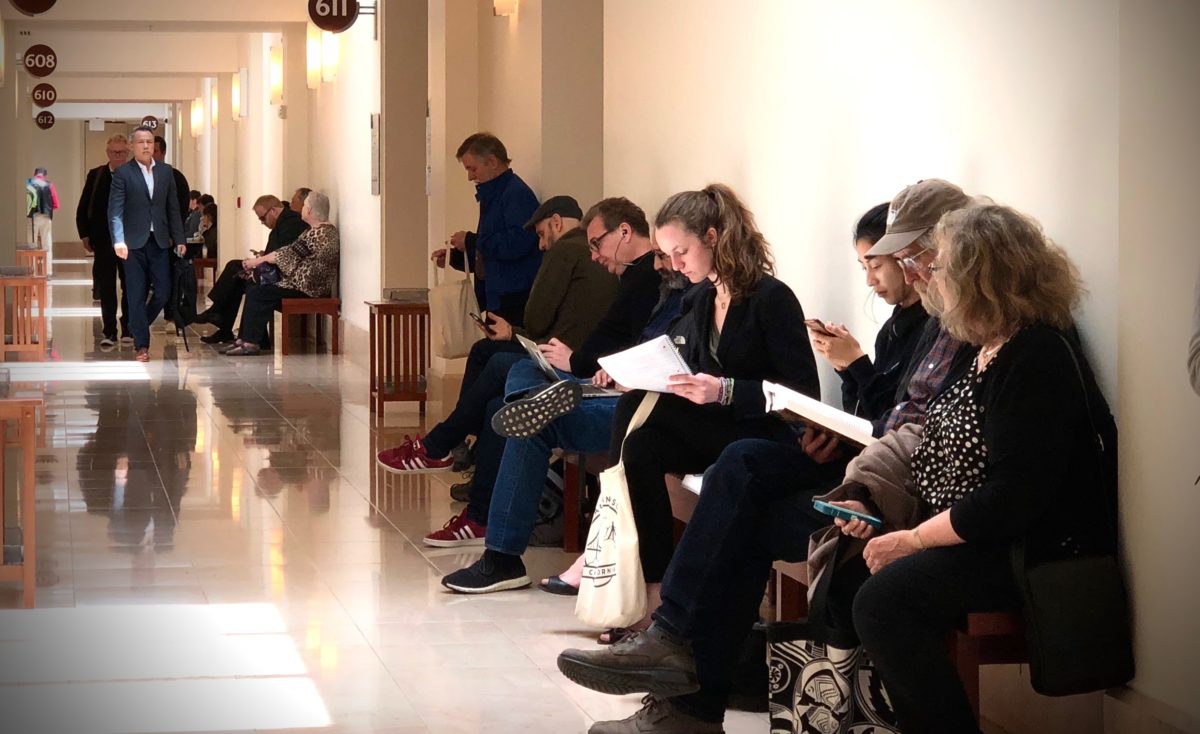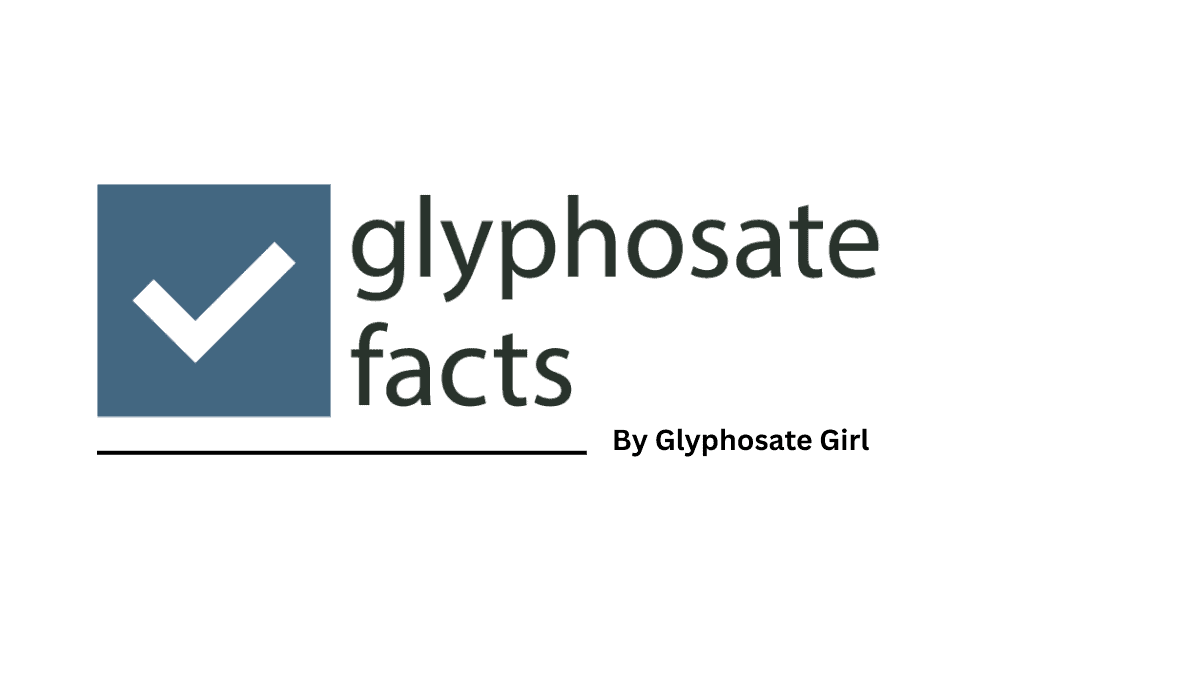Pre-Trial Day 6 – Call Me Maybe

Highway 101 is strangely manageable this morning – maybe a good omen. As I commute into San Francisco for another day of court, I continue to think about just how challenging it is to find jurors who haven’t heard about Monsanto. Monsanto’s team doesn’t want anyone on the jury who has come in with preconceived ideas on Monsanto. How can this be allowed? If the majority of randomized potential jurors who show up to the courtroom on their jury duty day (or 2 days worth of people in this case) have a bad sentiment regarding Monsanto, isn’t that a reasonable approximation of the sentiments of The City’s community? If every one of those jurors is dismissed, then it is not truly a balanced jury. We would then be left with a jury of people who don’t read the news, hear the news, think about clean food or visit social media.
Court begins promptly, but immediately goes into a private session with the judge and counsel.
MS. EDWARDS’ QUESTIONS CONTINUE
Parties return to the courtroom and Ms. Edwards, representing Monsanto, continues her questioning from yesterday to the panel.
In an effort to move things along, she asks just a few jurors to talk more about their lives. We hear about the following folks:
A residential contractor who is EPA certified in dealing with lead. Setting aside the current administration, he believes that the EPA does a good job in doing what it is supposed to do. He feels that there is benefit to pesticides. A wide variety of organic and non-organic pesticides exist, so a blanket statement that all pesticides are bad isn’t reasonable to him.
A chemical engineer turned brewer who knows a lot about chemistry. He learned in high school that combining math with chemistry could be lucrative, and decided to pursue it professionally. We hear detail about how to set up a brewery – – how that is relevant to questioning, I am not sure, but it was educational nonetheless.
A woman who has a PhD in Social Welfare and is a life coach. She took several courses in epidemiological statistics during her schooling. We learn that Social Welfare academics are the “more modest cousins” of Sociology academics.
A man who likes hiking and backpacking with the Sierra Club. He thinks that people are often too ready to sue in our society.
A woman who is a social worker and grew up in a rural farming community. She is friendly but rather brief with her statements.
AN EXCEPTIONALLY LONG BREAK AND WE ARE BACK
At 11:30, Judge Bolanos and the teams emerge, somberly filing in to the court. Looking like I do after breaking up fights between my 8 year old and 12 year old, Bolanos apologizes for the long delay.
Mr. Dickens gets going again, in his kind, ever-patient manner. Potential jurors are “committing suicide” all over the box, claiming that they are too biased against Monsanto to be fair in this trial.
10 in the box are excused, and the 10 remaining are consolidated into lower numbered jury seats
THE NEW PANEL
Mr. Dickens gets rolling on another round of questioning with this next crew.
Highlights:
One juror answers with long intellectualisms about the nature of a trial on scientific data when the jury members are not scientists. Bolanos comments that she understands the concern, but it is simply how our judicial system works. And that it works very well.
One juror doesn’t like class action lawsuits because the lawyers get most of the money, so it would make it hard to be impartial in this case. She then apologizes to Mr. Dickens for maybe offending him.
FOUR EXCUSED, FOUR ADDED – NEXT ROUND!
Mr. Dickens starts off with a question about the new potential jury panel’s comfort with awarding a substantial amount of money for emotional distress. Jurors individually express the challenges with placing a monetary value on a human life and distress. No one says that there should be a specific cap on the money awarded, but do recommend that suggested amounts from the court would be helpful.
Dickens asks about the importance of warning labels and EPA approval. Only one of the most recent 10 panel additions believes that if the EPA says it is safe, it is safe (same juror who worked in Federal Service for years). There is general consensus that science is always changing, and pending on how often the EPA runs tests, there could be new information on the toxicology of chemicals.
One woman worked for Wells Fargo during the huge corporate scandal a few years ago. As a result, she has suspicion about large companies and their senior executives. However, she feels she could follow the law and instructions of the court.
We meet a man who works in the vineyards of Napa, and has worked abroad in New Zealand as well. Roundup is widely used in large quantities on non-organic vineyards. He is involved in a SF based organization that helps farmers in California convert their traditional farms in to organic farms. Clearly, he has a very strong bias against Monsanto.
Dickens closes his questioning with a restatement that they are looking for a cross-section of opinions, not a jury of all pro-Monsanto jurors.
Ms. Edwards is back up and interviews several individual potential jurors.
One juror says that he has heard about Monsanto. Based on what he heard, the Roundup ready crops were designed to compliment Roundup, so it is either a really sketchy or really brilliant strategy. He would not act upon bias, however, because he has personal integrity to do the right thing.
Ms Edwards asks if anyone will feel embarrassed or uncomfortable to go back to family and friends after the trial if they found for the defendant. A few people said it would cause embarrassment and conflict socially. I love that she thought to ask this question, clearly aware of the Monsanto stigma bleeding into personal lives.
Six jurors are excused by the judge (not surprisingly, the woman who believes anything that the EPA says and the organic farmer are out). The Plaintiff and Defendant each exercise their rights to excuse a jury member – for the Plaintiff, the chemist turned brewer; for the Defense, a man who has used pesticides and formed opinions on them.
OH MAN, HERE WE GO AGAIN. EIGHT NEW POTENTIAL JURORS
Highlights:
The man who has been taking feverish notes behind me is finally called up to the box. He is so incredibly well prepared with his answers and doesn’t appear to raise any flags. There are clearly people here who would be excited to serve on this jury, but not many of those people have been called yet.
One man brings up Agent Orange and other pesticides, but doesn’t know what the final toxicological conclusions were on those chemicals. (I know, right?)
A data scientist says that more people would have cancer if Roundup were highly carcinogenic. Of course, I’m thinking of all the people I know with seemingly “random” bad cancer luck – so now I’m busy scratching my head.
END OF DAY FINAL THOUGHTS
The majority of the other jurors are middle-of-the-road, let’s-look-at-the-latest-science types of people. Hopefully, this means that things can wrap up on the jury selection front first thing tomorrow.
The thoughts that most of these interviewees expressed were well conceived regarding toxins, science and limiting unnecessary exposure to chemicals. I think the team will land with an intelligent group of jurors.
© 2018 Kelly Ryerson ALL RIGHTS RESERVED

